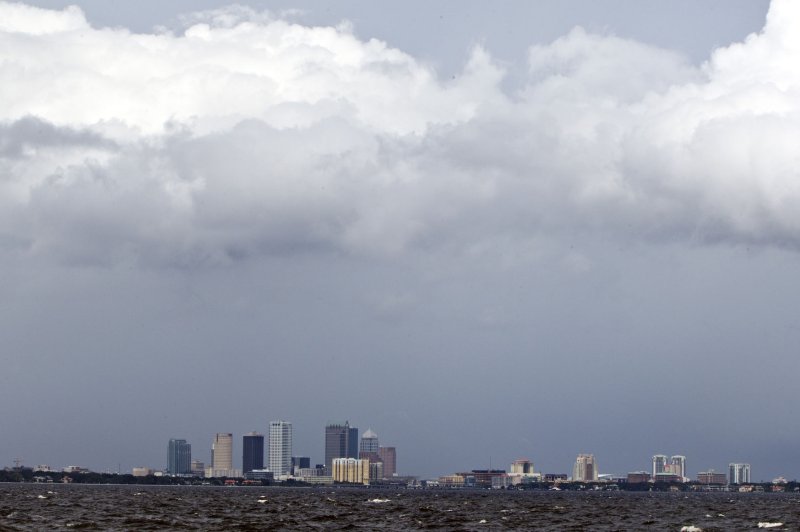Tropical Storm Isaac's storm clouds hover over downtown Tampa, Florida. File Photo by Mark Wallheiser/UPI |
License Photo
April 9 (UPI) -- The wet season in Florida's cities are getting shorter and more intense compared to the sunshine state's more rural areas.
The new research, detailed this week in the journal Climate and Atmospheric Science, suggests urban development is altering local climate patterns.
Scientists at Florida State University began their research by mapping urban development across the state, rating land cover on a scale of one to four -- one being the least developed and four being the most urban. Researchers then compared their map to annual precipitation patterns.
"What we found is a trend of decreasing wet-season length in Florida's urban areas compared to its rural areas," Vasu Misra, an associate professor of earth, ocean and atmospheric sciences at FSU, said in a news release.
The data suggests Florida's urban growth over the last several decades has reduced the length of the wet season by an average of 3.5 hours per year. However, precipitation levels have remained largely the same.
"In other words, the urban areas experience the same amount of rainfall as the rural areas but in a shorter amount of time. Therefore, the hourly rain rate is stronger in urban regions," Misra said. "This suggests that urban areas are receiving the rainfall in shorter, more intense bursts -- particularly during the summer months."
The findings support previous research efforts that have shown the size and shape of cities -- their layout, or urban footprint, and their skyline -- can affect regional climate patterns.
But why are cities working to shorten wet seasons? Scientists aren't certain, but they have educated guesses.
Some scientists think less water is evaporating into the atmosphere as concrete allows runoff to be carried away instead of being trapped by vegetation. Others think storm systems are being split apart by circulation patterns developing over urban land cover. Some surmise the urban heat effect is encouraging more intense storms.
"We have theories, but whether those theories are actually representative of what's happening in nature has not been investigated intensively in the context of what we are observing in Florida," Misra said. "We don't have enough data available at our disposal."















